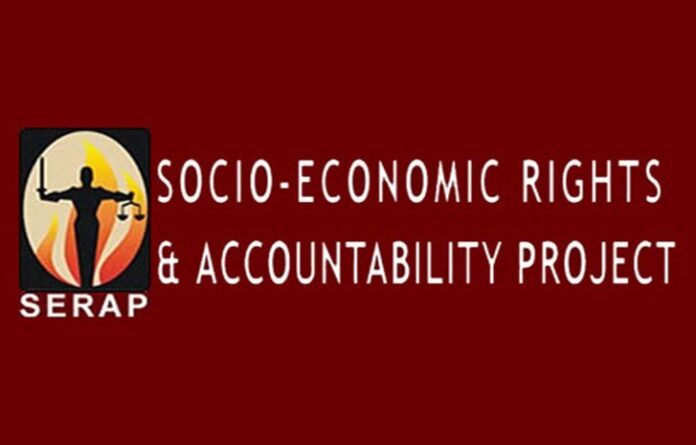SERAP findings in health, education and water sectors revealed that poor people are victims and not perpetrators of corruption
By Onyewuchi Ojinnaka
Research by the Socio-Economic Rights and Accountability Project (SERAP) indicates that poor, vulnerable Nigerians are mostly the victims of grand corruption in government social services such as Education, Health and Water sectors.
Consequently, the media have been charged to be proactive and be the vanguard in the fight against corruption in these sectors.
They were also urged to focus their reports mostly in the rural areas because the government has failed to address the issue of corruption, especially in Education, Health and Water sectors which has adversely affected the rural communities.
The charge was made in an interactive session tagged “The Role of the Media in promoting Transparency and Accountability in the Education, Health and Water sectors in Nigeria”, at media roundtable organised by the Socio-Economic Rights and Accountability Project (SERAP) in Lagos.
RELATED
SERAP sues Buhari, demands recovery of ‘missing N881b’
SERAP is a non-profit, non-partisan, legal and advocacy organisation devoted to promoting transparency, accountability and respect for socio-economic rights in Nigeria.
The interactive session moderated by Mr Kayode Okikiolu focused on how the media can play active role in promoting transparency and accountability in government projects by investigating how funds budgeted and released for social services such as Education, Health and Water sectors are spent or used.
It was however observed that the problems encountered by journalists in reporting anomalies and grand corruption in government agencies and MDA’s are mostly caused by governments and media owners.
It was further observed that because government is a stakeholder directly or indirectly in all media houses by way of issuance and withdrawal of operating license, media owners censor reports filed in by journalists in order to avoid the wrath of government by way of suspension/ withdrawal of operating license or total proscription.
In the interactive session attended by journalists, students, CSO’s, and physically-challenged persons, journalists were asked not to be discouraged or dampened but continue to fight corruption by exposing corrupt practices in government agencies and MDA’s.
Earlier, SERAP’s deputy director Oluwadare Kolawole made a presentation titled “We are all Victims: The Human Rights Consequences of Government’s Failure to Address Corruption in the Education, Health and Water sectors”.
He described Education, Health and Water as rights of every Nigerian, saying that the 1999 Constitution spelt out, hence the enactment of the National Health Act and Universal Basic Education (UBEC) Act.
He stressed that middle class and vulnerable Nigerians are mostly the victims of this grand corruption in these sectors.
SERAP’s findings in health, education and water sectors revealed that poor people are victims and not perpetrators of corruption in these sectors. Corruption in these and other sectors contribute to poverty and consequential suffering of people living in neighborhood.
“Budget fraud, procurement fraud, embezzlement of funds among other illegal actions lead to failure in the delivery of services including education, water and health. Combating corruption is a poverty reduction strategy,” SERAP said.
SERAP added that: “In education sector, Nigeria has the highest number of out of school children in sub-sahara Africa, about 10,193,918 children are out of school in Nigeria. In health sector, Nigeria is one of the countries with highest mortality rate in the world, accruing for about 20 per cent global maternal deaths.
“In water sector, Corruption is a major cause of failure of public water delivery. As s result, poor people are constrained to helping themselves”
Consequently, journalists need to speak more people in rural areas about transparency. Journalists should be writing big stories on bad roads, poor educational system, poor health system and health problems and poor water supply.”













